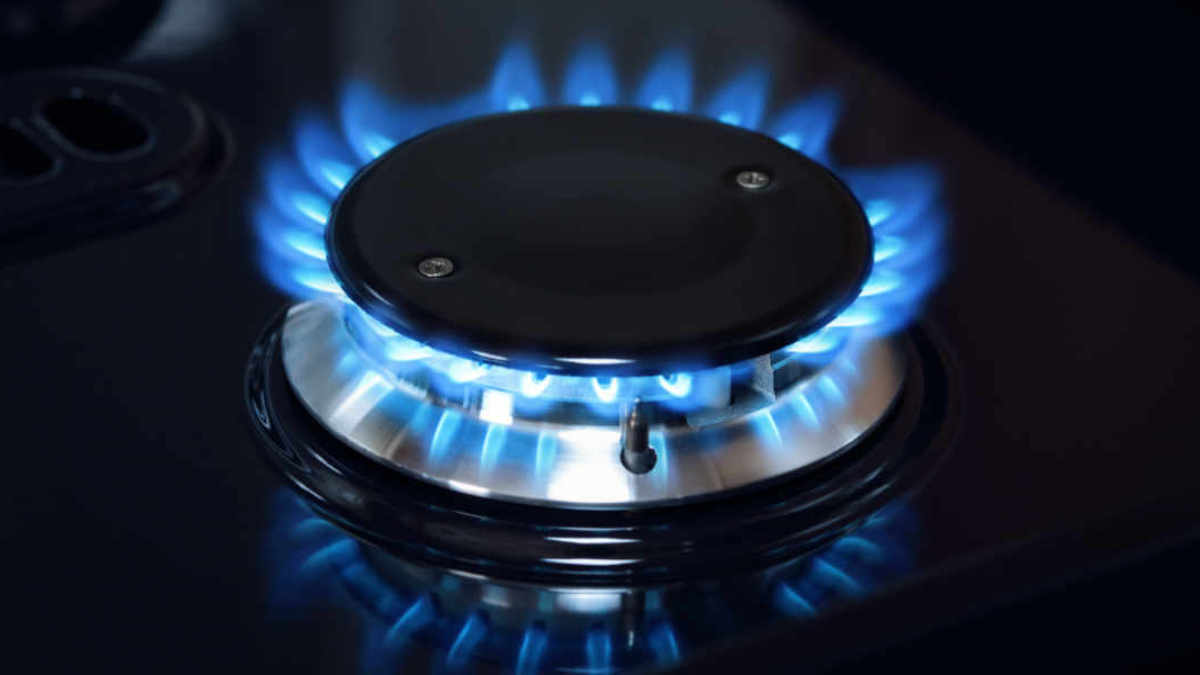Energy bills are one of the largest household costs. Gas and electricity costs UK households around £1,138 per year – around £95 per month – according to Ofgem. You can save money on your gas and electricity bill with our top energy saving tips. From simple changes such as lowering the thermostat and stopping drafts, to updating appliances with energy-efficient models and replacing an old boiler – these energy-saving tips could see cheaper energy bills for gas and electricity customers.
There are lots of quick wins that can shave money off gas and electricity bills, and the Energy Saving Trust has a free Home Energy Check service that can help you spot where you can cut the cost of energy at home. It’s a free, online calculator that shows you how you can reduce energy bills. It provides a free report that lists home improvements you can make and how much it will cut the cost of gas and electricity bills.
Energy-saving tips: Turn down the thermostat
According to a recent government study A Green Future, the recommended household temperature should be around 21oC, though many homes in the UK have it set as high as 30oC during winter. The minimum should be around 18oC, especially for older people, and you shouldn’t set it below 16oC.
A simple energy saving tip is to lower the thermostat temperature by 1oC – saving around £75 per year according to the Energy Saving Trust. Each degree lower saves around 10% of your annual energy bill.
Start by lowering the temperate to 18oC and increasing it each day until your rooms are heated to a comfortable level.
There’s no need to do this for your entire home, either. Set radiator thermostats or temperature controllers in less-used rooms to a lower temperature – and remember to adjust the temperature when you’re away from home for a long period.
Energy-saving tips: Boiler replacement and heating controls
Old, inefficient boilers and controllers can result in larger gas and electricity bills. Replacing an older boiler with a new, A-energy rated condensing boiler results in cutting the cost of your gas bill. According to the Energy Saving Trust, expect to save around £300 per year with a new boiler.
With a new boiler costing upwards of £3,000 including fitting, you can cut costs significantly by avoiding the expensive mark-up boiler fitters charge when they buy a boiler for you. Shop online and buy your boiler directly from the manufacturer or from online plumbing stores and you can save up to 50% on the amount you’d pay for a fitter to source it for you. Check with a boiler fitter that they’re happy to install a boiler you buy yourself before hiring them.
Even if you don’t get a replacement boiler, it’s worth updating boiler heating controls. Buying a modern, programmable room thermostat with more controls and thermostatic radiator valves can knock up to £150 off your annual gas bill. Look for thermostat controllers that are programmable so you can set different temperatures for different days of the week or times of the say, such as a lower temperature during the night when you are asleep.
Looking for a new boiler? Read our guide to how to choose the best boiler to discover which type of boiler to choose and replacement boiler costs.
Energy-saving tips: help radiators work effectively
Radiators work by convection – drawing in cold air at the base that heats as it rises up past the metal fins. Help radiators heat air more effectively by ensuring a free flow of air to the radiator. Ensure furniture such as sofas and fittings such as curtains don’t block off air to a radiator and avoid placing items on top of a radiator stopping warm air from rising into the room.
It’s worth fitting thermostatic valves to radiators, which let you set a temperature for each room individually. Similar to the energy-saving tip above, set the radiator thermostat low initially, then increase it 1oC until the room is a comfortable temperature.
Energy-saving tips: dealing with drafts
Preventing drafts is a cheap and effective way to lower the cost of energy bills. While new-build homes are usually draft-free, older houses can be plagued with drafts. Dealing with drafts can add up when it comes to savings. According to the Energy Saving Trust, expect to save around £25 per year for cutting out door and window drafts, and £15 per year for stopping chimney drafts.
While you can hire a professional tradesman to stop drafts – expect to pay up to £300 to draft-proof a house – it’s cheaper to stop drafts yourself with DIY materials. Foam tape, chimney blockers, door and letterbox brushes and silicon seal for fixing floorboard drafts are inexpensive and easily fitted. When buying, look for products with a BSI kitemark, as they have been rated to last around 20 years.
Energy-saving tips: energy-saving appliances
Household appliances such as dishwashers, tumble dryers and washing machines are some of the biggest users of electricity, with a typical washing machine costing around £100 a year to run for an average family of four. You can upgrade appliances – look for energy-efficient appliances when you replace a washing machine or kettle – and significantly lower your energy bill.
There are some simple energy-saving tips you can do that don’t cost anything – and can lower energy usage:
- Make sure you use full loads for appliances such as dishwashers and washing machines, reducing the number of times you run each appliance.
- Wash clothes at 30oC in a washing machine – enough to get them clean and see savings on your energy bill.
- Make the most of dry, warm weather to hang wet clothes outside rather than turning on the tumble dryer.
- When using a kettle, fill it only with the amount of water you intend to use, rather than filling it entirely and wasting electricity heating water that isn’t needed.
- If you live in a hard water area, use regularly descale limescale that builds up in washing machines, kettles and coffee makers.
- Avoid leaving appliances on standby. According to the Energy Saving Trust, the average household spends around £30 on energy bills leaving appliances on standby. Most appliances can be switched off at the plug and will retain their settings when switched back on.
- Some devices, such as wi-fi routers and digital TV recorders, however, are best left on standby so they can continue to work.
Energy-saving tips: home insulation
Most homes have insulation, especially new builds and recent extensions to older homes. However, older properties either lack insulation or may not be insulated to a modern standard. Insulating certain areas of your home such as loft is relatively inexpensive especially if you do it yourself.
Adding loft insulation can save up to £100 per year off of gas and electricity bills, according to the Energy Saving Trust. If installing loft insulation yourself, ensure it is to the recommended depth of 270mm. It’s worth checking the depth of loft insulation in older properties and topping up insulation that isn’t 270mm.
Other types of insulation include wall cavity insulation and underfloor insulation. These are best fitted by a professional but can lower energy usage.
Discover the best types of insulation to use in your loft with our guide Loft insulation: save money by insulating your loft.
Energy-saving tips: switching energy supplier
Most households in the UK are on standard energy tariffs, paying more for their gas and electricity than they need to. Switching your gas and electricity supplier is simple, easy and there are lots of options. According to the Energy Saving Trust, switching energy provider can result in savings of around £300 per year – and you could get that saving with a simple phone call.
There are two energy-saving tips to follow:
- Existing energy supplier Your energy supplier must tell you if you’re on the cheapest tariff each year, and if not what tariff is available that is the cheapest. Contact them by phone and ask to switch to the cheapest tariff. It can usually be done there and then and can save you hundreds of pounds.
- Switching to a new energy supplier For even greater savings, it’s worth shopping around for the best possible price for your gas and electricity. Use online services such as Carphone Warehouse Energy and uSwitch to search for a better tariff.
If you are with an existing energy supplier, switch your payments to Direct Debit rather than paying by cheque. If you can manage your account online you can save even more by switching to paperless bills. Paying by Direct Debit and going paperless can save over £100 per year, according to the Energy Saving Trust.
Energy-saving tips: light bulbs
Light bulbs are one of the biggest consumers of electricity – and lighting your home can cost a fortune. Older, traditional incandescent lightbulbs have been phased out, and newer LED lightbulbs offer dramatic savings – as much as 90% over traditional lightbulbs, costing pennies rather than pounds to run. While LED lightbulbs cost significantly more than traditional incandescent lightbulbs, they last far longer, meaning the physical cost can be lower in the longer term.
Energy-saving tips: benefits and grants
There are numerous grants and schemes available than can help lower the cost of energy – from help with insulating your home and replacing a boiler, to installing alternative energy suppliers such as solar. Some energy suppliers, such as British Gas, offer periodic sales on the cost of installing new boilers and money off for part exchanging your old boiler. Check with organisations such as the Energy Saving Trust and your local council to see what grants are available.
The government offers two money grants for older people or those on benefits. The Winter Fuel Payment is available for those born before 5 May 1953, who could be eligible for up to £300 tax-free. Visit the Winter Fuel Payment government site or 03459 15 15 15 for details.
The second benefit is the Cold Weather Payment, which triggers if the temperature drops below a certain level for seven days in a row. The Cold Weather Payment is automatically paid to people on certain benefits – no need to do anything.
































































